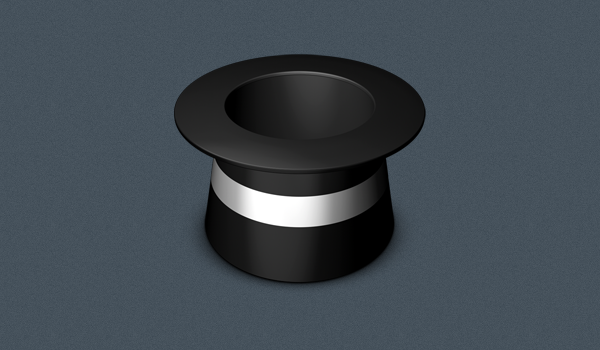There's nothing like a child prodigy to make you feel like your life is over, even if you're only 21.
Most prodigies have done more intellectually by that time than we'll do in our entire lifetimes.
Even worse, some of them even go on to be prolific adults. It's enough to make you feel like evolution just left you behind.
Most prodigies have done more intellectually by that time than we'll do in our entire lifetimes.
Even worse, some of them even go on to be prolific adults. It's enough to make you feel like evolution just left you behind.
There's nothing like a child prodigy to make you feel like your life is over, even if you're only 21. Most prodigies have done more intellectually by that... more

UNRANKED
CURRENT SCORE
less stats more stats3.09
Rank (best ever) 12
Score (all time) 3487.00
Created 09/03/09
Views 3433
Votes [disabled]
view list history
1
Pascal
Blaise Pascal only lived to be 39 years old...but the 17th-century Frenchman really packed it into those four decades, getting an early start when he began doing complex geometric proofs at age 12. By 16, he had his own theorem and was hanging out with prominent French mathematicians. He even invented an early mechanical calculator, called the Pascaline, at the age of 19. By the time of his death, Pascal had moved beyond mathematics to become a philosopher, theologian and writer. Today, he's known as much for being an expert in those fields as he is for being a mathematician. Among his more famous philosophical notions was Pascal's Wager, his argument that you might as well believe in God, because believing carries no risk and potentially plenty of reward. Very pragmatic.
2
William James Sidis
Look, maybe it's all a legend, but they say that William James Sidis had an IQ of 250 to 300 and could read before he was 2. Some grown-ups still can't do that. Born in 1898, Sidis spoke a handful of languages, was a mathematical genius and started Harvard at 11, becoming a professor before he was 20. Sadly, Sidis was perhaps the originator of the classic stereotype of a sad, maladjusted child prodigy, thrust into the limelight by overzealous parents. Jailed at a socialist anti-war rally in 1919, Sidis withdrew from his former life, disavowing his academic career and taking on straightforward tasks such as working an adding machine, collecting objects and brooding over the lost love of his life. He died in 1944, at the young age of 46. He may have been the smartest man on the planet.
3
Akrit Jaswal
Not many 7-year-olds perform surgery...or want to, for that matter. It almost makes you wonder what the other doctors were thinking, letting this kid scrub in? But Indian-born Akrit Jaswal, now a teenage university student, was always a little different. He's not a formally trained doctor, but his parents insist he's always had a passion for anatomy and science. You know, ever since he put down the Shakespeare he was reading at the age of 5. These days, Jaswal says he's focused on trying to find a cure for cancer. He's got a lot of years ahead of him to work on that.
4
John von Neumann
When your 6-year-old can divide eight-digit numbers in his head, I think it's fair to say you've got a prodigy on your hands. Hungarian-born von Neumann was memorizing pages from the phone book as an 8-year-old, but by the time he died in his mid-50s, he had moved on to far more weighty challenges. Von Neumann paired up with the world's top physicists to confront the mysteries of quantum mechanics and with economists and foreign-policy types to address human behavior with game theory. He went on to become a key player in the development of the atomic and hydrogen bombs and an early and influential computer designer. He also kind of favored using those nuclear weapons preemptively and, wheelchair-bound in his final days, may have been the inspiration for Dr. Strangelove. Huh. Well, evil scientist or not, he had a prodigious start.
5
Jean Piaget
For a man who would go on to study typical childhood cognitive development, Jean Piaget certainly had an atypical childhood. The Swiss-born Piaget published his first scientific paper in 1906 when he was 10 years old, going on to publish multiple papers on (go figure) mollusks. Piaget watched children as they grew from infants to adults and observed how they learned, grew and developed. His conclusions changed how society viewed children and childhood, showing us that it was an important and unique time in a human being's life. Somehow, after Piaget, play seemed much, much more profound - an easy conclusion for a man whose own child's play consisted of some pretty weighty things.
6
Kim Ung-Yong
With an IQ around 210, Kim Ung-Yong started university courses at age 3, around the time you were playing with a magnetic alphabet on your parents' refrigerator. The Korean-born Kim paraded around Japanese television in the late 1960s, solving complicated calculus equations, composing poetry and speaking a multitude of languages, before eventually heading stateside to, you know, help out NASA and get his Ph.D...all this before you had graduated high school. Since then, he's mellowed out and settled into a more ordinary life back in Korea, where he's now a college professor.
7
William Rowan Hamilton
How many teenagers know 10 languages? William Rowan Hamilton knew 14. Take that. Born in 1805 in Dublin, Hamilton was already studying complicated mathematics by the time he was 16. He spent much of his career studying optics, but his most influential work was perhaps on algebra and quaternions, a number system that has gone on to become important today in everything from computer graphics to quantum physics to basic vector algebra. No wonder the Irish are still so proud of him.
8
Paul Erdos
Do you know how many seconds you've been alive? Three-year-old Paul Erdos could have told you. As a child in Hungary in the 1910s, it was kind of his parlor trick. By his early 20s, Erdos had moved beyond that trick to get a Ph.D. in mathematics. He had also become quite the eccentric, developing his own unique set of vocabulary and doing his best to live out of a suitcase. By the end of his life, Erdos had become one of the most prolific mathematicians ever, publishing over a thousand articles, many of them in his 70s, proving that getting an early start doesn't mean you won't finish the race strong.
9
Carl Friedrich Gauss
Before 1777, when Gauss was born, math was a different game than it is today. Gauss didn't take long to start changing it, starting with some fancy calculating around the age of 3 and figuring out how to sum 100 numbers in a couple of seconds in his elementary-school classroom. Gauss went on to make important contributions to algebra and number theory. He also did some work on magnetism, which is why you might have seen his name on a magnet: the Gauss is a unit used to measure magnetic field.
10
Maria Agnesi
Maria Agnesi was born in Milan in 1718, during a time when women weren't usually welcomed in academic circles...but she was different, speaking a handful of languages as a child and delivering formal speeches to her father's academic friends. At the age of 20, she published some of these lectures on philosophy, but her most important work, on calculus, wasn't published until she was 30 years old. By the time she died at the ripe old age of 80, Agnesi had been appointed to a professorship by the pope. Not bad for the 18th century.
Not watching this list (get updates on this list).
(all people watching this list)
MORE LISTS


Top Ten Top Ten Ways to Go Green

Top Ten Bing! Ten Other Ideas

RECOMMENDED LISTS


COMMENTS







 ).
).
